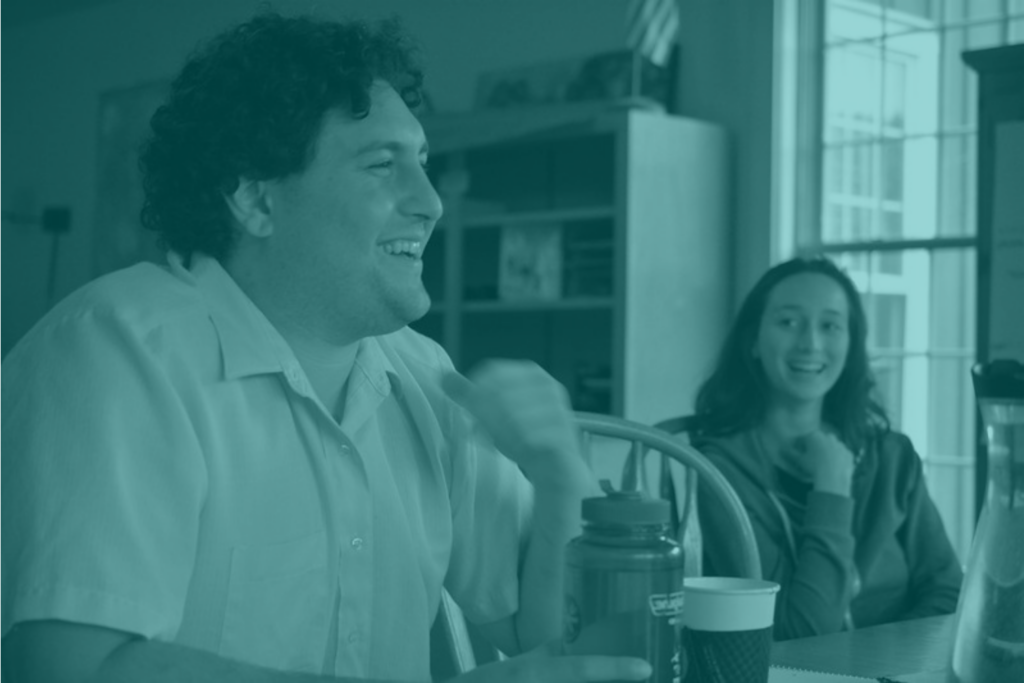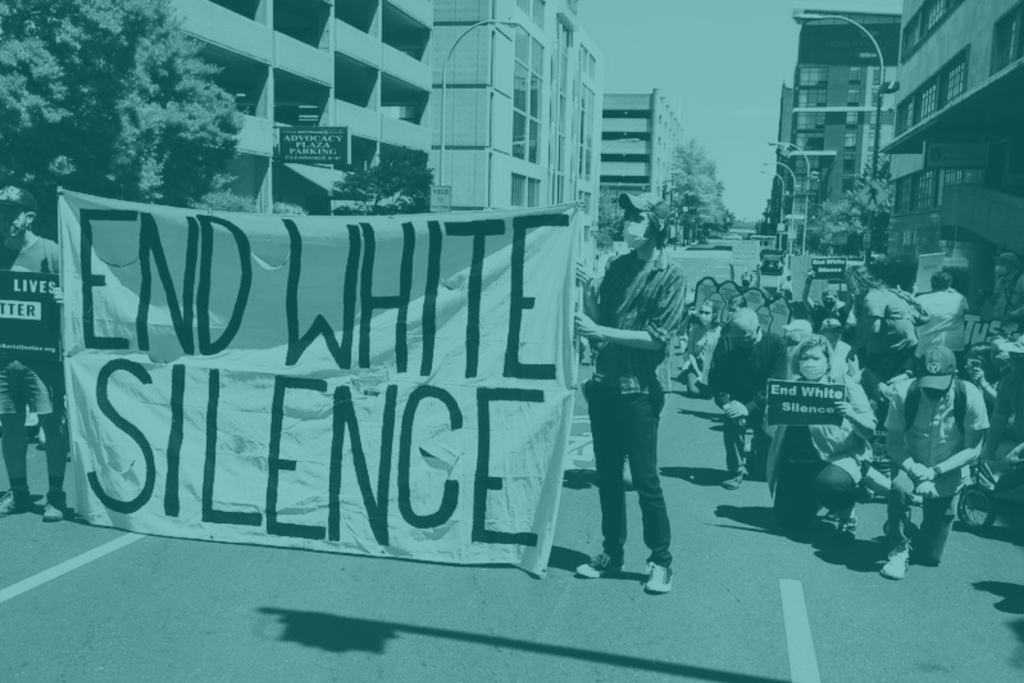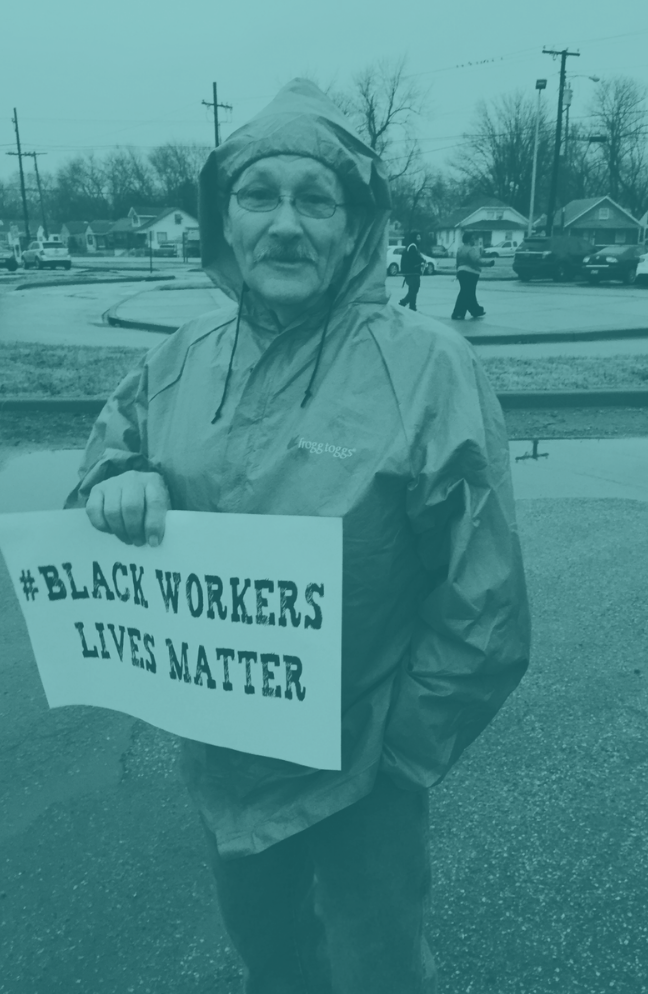
SURJ’s values ground our work and have been developed and honed over more than a decade of organizing. We believe we must have an inclusive, openhearted approach to organizing— bringing more and more people into this work rather than creating barriers to participation— while maintaining clear commitments to justice.
Calling People In
- It is all too common to shame and blame people who don’t have the “perfect” words or don’t exactly agree with or understand our analysis. That kind of behavior doesn’t help us build a mass movement for change.
- Calling people in is how we want to be with one another as white people. That means:
- Recognizing we all mess up, and speaking from this shared experience
- Being specific and direct
- Talking to people in times and places that support conversation and learning
- Calling people in isn’t:
- How we want to be with people in power — we organize to create tension and target people in power. Calling them in isn’t how we think change happens.
- A way to keep people in the mainstream comfortable. When people who are at the “margins” of a group (such as LGBTQ folks, people with disabilities, poor and working-class people) have feedback or choose to speak, they don’t need to be “polite” or avoid tension.
Accountability Through Collective Action


- We believe change happens when we build with millions of other people to change culture, policies and practices. We need a mass movement to make change.
- We build accountability relationships with organizations led by people of color who are doing racial justice work in the movement.
- Accountability doesn’t mean waiting by the phone for a person of color to tell us exactly what to do. It means developing plans to organize in the white community and seeking feedback.
- Sometimes people of color are too busy organizing in their own communities to provide us feedback. We should act in those cases and not wait for permission.
Take Risks, Make Mistakes, Learn and Make Amends, and Keep Going
- As white people, we are going to make mistakes when doing racial justice work. It’s inevitable. We don’t know anyone who has been in the work and hasn’t made a mistake. Not a single person.
- People of color take risks every day by living and moving through the world. We commit to challenging ourselves to be outside our comfort zones when doing this work.
- While we take on real risk, we know that the risk is always greater for people of color.
- When we make mistakes, we want to take the time to reflect on them thoughtfully and keep moving in the work. If the mistake has caused harm, we must make amends for the harm caused through apologies, changes in behavior or other kinds of commitments. We cannot let making mistakes prevent us from continuing our work. There’s just too much at stake.
- We need to support our friends and members of our group when they make mistakes to learn, make amends, and stay in motion.
Organize Out of Mutual Interest
- Racial justice isn’t something we help people of color with. We must find our stake— our mutual interest— in joining these fights.
- The system of white supremacy harms all of us — including white people, though in very different ways than people of color.If we are going to stay in the work for the long haul, we need to get clear with ourselves about what we have to gain through this fight.
- Many white people, like poor and working class, disabled, and queer people, have also been harmed by systemic oppression and have much to gain materially from joining fights for racial and economic justice.
- White supremacy has hurt white people by cutting us off from powerful traditions and cultures that we come from. Instead, we learn to celebrate money and power. It also hurts poor and working-class white people in particular by keeping white folks from uniting with people of color to fight for fair wages, healthcare, and everything that all of us deserve.
There is Enough for All
- There are enough resources in the world for everyone’s basic needs to be met (decent housing, food, safety, etc).The problem isn’t that we don’t have enough — it’s that it’s distributed unfairly.
- Those who benefit from the status quo saturate our culture with this lie: if Black people and people of color win, white people lose. We know this false logic only benefits the wealthy few.
- The people at the top — the 1% — have most of the wealth. They use strategic racism as a tool to make sure white people blame people of color for their problems instead of those at the top. What they fear the most is a united front of people of all races fighting against them to win the things we need to live full lives.
- We are trained to believe that there is a shortage of resources, so we need to hoard them, avoid sharing, and compete with others. In order to build a movement for justice, we need to share and support one another in our organizations and as individuals.
People will do this work in different ways, and that’s okay because we need everyone joining this work.
Growing is Good
- We need millions of white people to join the movement for racial justice to achieve the scale of change we need. This means we need our groups to grow.
- For decades, the Right has poured billions of dollars into making sure white people believe they have more in common with a white billionaire than with the Black family down the street. The Right relies on white people’s racism to maintain power. This is the scale of what we are up against, and thus it is important to bring more and more white people into our work.
- Sometimes it feels easier to close our groups off and only spend time with people who are like us. In order to build a movement, we need to push ourselves to open up and work with anyone ready to take action.
- It is important to make sure new people have a chance to become leaders. That means making a lot of opportunities for new people to do new things. Action is how we create commitment to our work!
Center Class


- Our culture, media, and politicians blame poor and working-class white people for racism, often without recognizing that middle- and owning-class white people disproportionately support policies and practices that uphold white supremacy.
- We reject the harmful stereotypes and the analysis that poor and working-class white people are responsible for racism. The people who benefit most from racism and white supremacy are the very wealthy — not poor or working-class white people.
- History tells us that poor and working-class people of color and white people have been at the front lines of anti-racist struggle for generations.
- SURJ is committed to supporting the leadership of and organizing in poor and working-class communities.
- We need people of all class backgrounds in this work.
SURJ has committed to centering disability justice and poor/working-class organizers in our work. Click here to read more about disability justice, and click here to read more about our commitment to poor/working-class organizing

